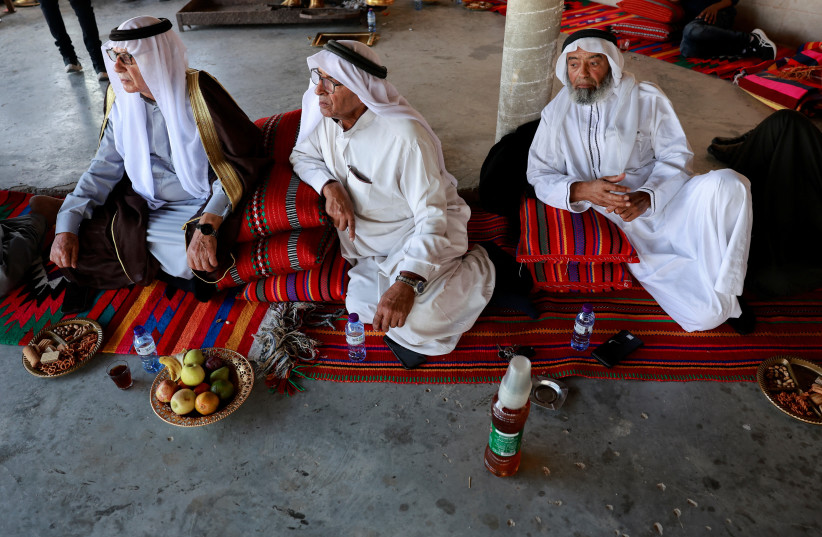The recent rescue of Qaid Farhan Alkadi by the IDF offers Israelis a unique opportunity to better understand the Bedouin community. Often subjected to negative media coverage, the Bedouins are now the subject of a different narrative – one of unity and shared humanity. It is our responsibility to ensure that this connection does not fade, and that Alkadi becomes a shared beacon of hope.
For 326 days, Alkadi was deprived of sunlight, held underground in harsh conditions, and subjected to abuse, along with his fellow captives. We may never understand the extent of the pain he endured in Hamas captivity. As an Israeli Muslim Bedouin Arabic speaker, he was targeted for his Israeli nationality, suffering beatings and humiliation for this reason alone. During his captivity, he formed bonds with Jewish captives, some of whom tragically did not survive. Alkadi explained that underground, when labels and stigmas were stripped away, the basic and simple truth became clear: We are all human beings who seek nothing more than a simple and decent life, a life of freedom and goodness.
Hamas has chosen a different path.
For many years, the narrative persisted that Bedouins were importing wives from Gaza – just a quick Google search on the issue of blue ID cards will reveal this perception. This narrative, based on a few incidents, has taken a turn since October 7, and Hamas’s actions and their attacks on the Bedouin have led many to reassess their relationship with Gaza. They now see it as a source of hatred that targets even their own. It is crucial that we capitalize on this shift, fostering a positive and hopeful dialogue between Bedouin and broader Israeli society.
In the coverage of Alkadi’s release, some reporters mistakenly linked his residence to Rahat, while he lives nearby in an unrecognized village without any legal status. For years, he had been waiting to move to the city of Rahat but his change-of-residence requests had gone unanswered. He lived with his family in an unrecognized village until the day of his abduction. The housing issue, raised yesterday by Alkadi’s friends and family, deserves more attention from mainstream Israeli society. It is a challenge faced by an entire sector, torn between the old and new worlds – and the central government has yet to find an effective solution. If we take the time to listen to Alkadi once he has recovered, he can offer us an important lesson about Bedouin society, which could lead to a better approach to addressing this issue.

We must take the first steps toward building trust. I have seen, firsthand, the power of small gestures in building trust. As mayor of Efrat, I advocated for considering the needs of the neighboring Palestinian village in case of a water crisis. We recognized the need to care for them, included them in our considerations, and offered a solution. This led to an important meeting with the village leaders to foster trust, cooperation, and dialogue between both sides. Small initial steps can pave the way for a long-lasting path. Similarly, Home Front Command’s decision, at the beginning of the war, to build bomb shelters in both recognized and unrecognized Bedouin villages, was one of the steps towards trust and cooperation.
Alkadi gathered intel
Alkadi’s fluency in Arabic proved invaluable to the Shin Bet, helping them gather intelligence and understand the dynamics among the captors. His conversations with Prime Minister Benjamin Netanyahu and President Isaac Herzog after his rescue reveal him as a proud Israeli, deeply connected to the communities in the Gaza border area where he worked. His ability to speak Arabic should be leveraged, with his consent, by incorporating him into Israel’s public diplomacy efforts toward the Arab world and other countries. Through his words, he can debunk Hamas’s attempts to portray their actions as righteous.
However, to truly benefit from Alkadi’s potential, we must preserve the ray of hope that emerged with his rescue – a ray that revealed a different Bedouin story among us, taught us more about the challenges of our time, and brought us all a moment of joy in a long year of sorrow.
The writer is a former mayor of Efrat.
